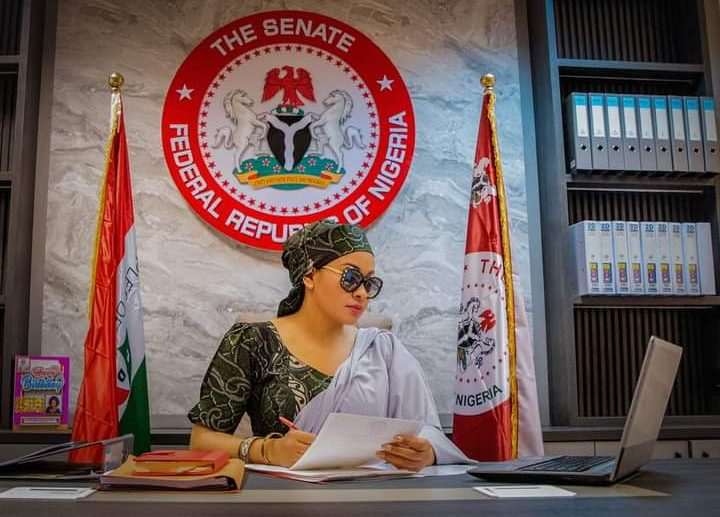Senator Natasha Akpoti-Uduaghan, representing Kogi Central, is expected to return to the National Assembly later this month following the completion of her six-month suspension. Her counsel, Victor Giwa, confirmed that the lawmaker, who is currently on vacation in London, has already scheduled her resumption when plenary reconvenes on September 23.
Speaking in Abuja, Giwa expressed confidence that there would be no hindrance to her return. “We have been told that even the leadership of the Senate is ready to welcome her. So that’s the situation at the moment. There is no obstacle at all,” he assured.
Akpoti-Uduaghan was suspended on March 6 after a dispute in plenary over a change of her designated seat, which the Senate Committee on Ethics, Privileges and Public Petitions interpreted as insubordination. The penalty not only barred her from participating in legislative activities but also stripped her of official aides, salaries, and office privileges.
The senator, however, maintained that her suspension was politically motivated, linking it to her petition accusing Senate President Godswill Akpabio of sexual harassment — an allegation the Senate dismissed. She challenged the decision in court, insisting that her removal was unlawful. Though she secured a ruling she claimed favored her recall, Senate leadership stood firm, insisting that she would remain suspended until the six-month term elapsed.
Her attempt to resume in July ended in chaos when security operatives blocked her entry into the National Assembly despite the presence of her supporters who had gathered in solidarity.
With her suspension officially expiring last Saturday, Giwa insisted that lingering legal disputes would not affect her reinstatement. “Everything will be resolved. Even the court cases will become like an academic exercise,” he said.
Efforts to obtain comments from the Senate leadership proved unsuccessful, as calls and messages to Senate spokesman Yemi Adaramodu and Akpabio’s media aide were not returned.
Akpoti-Uduaghan’s imminent return is expected to reignite debates around legislative discipline, gender politics, and the treatment of dissenting voices within the upper chamber of the National Assembly.





